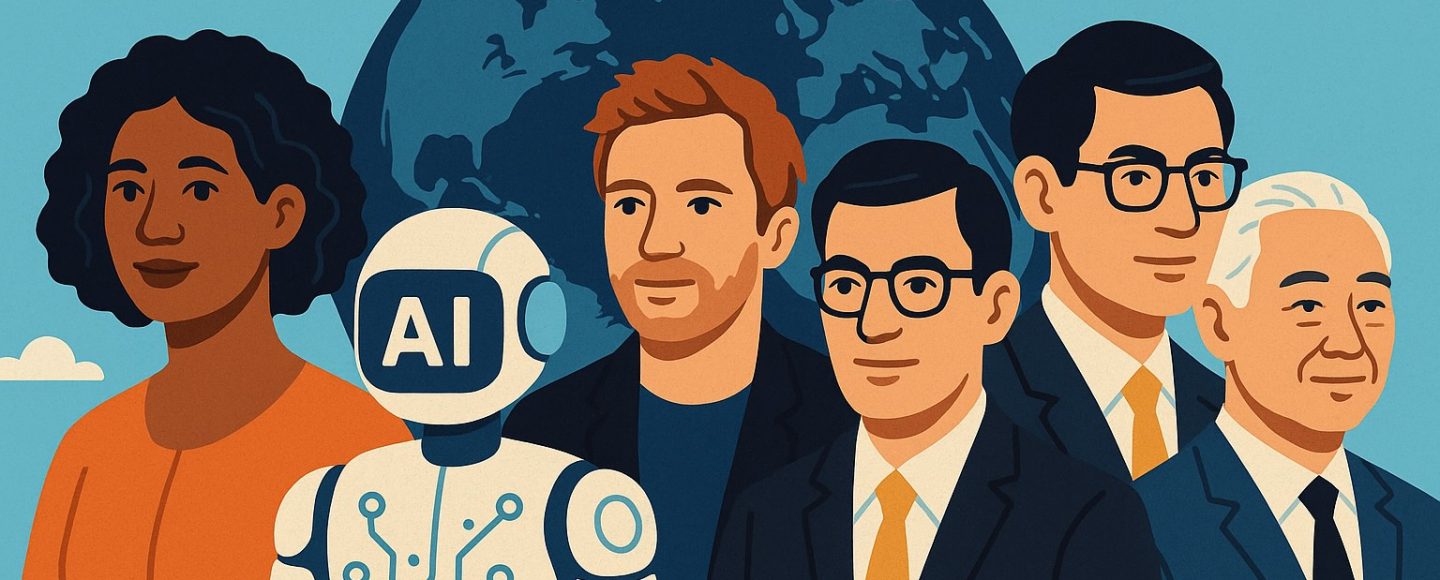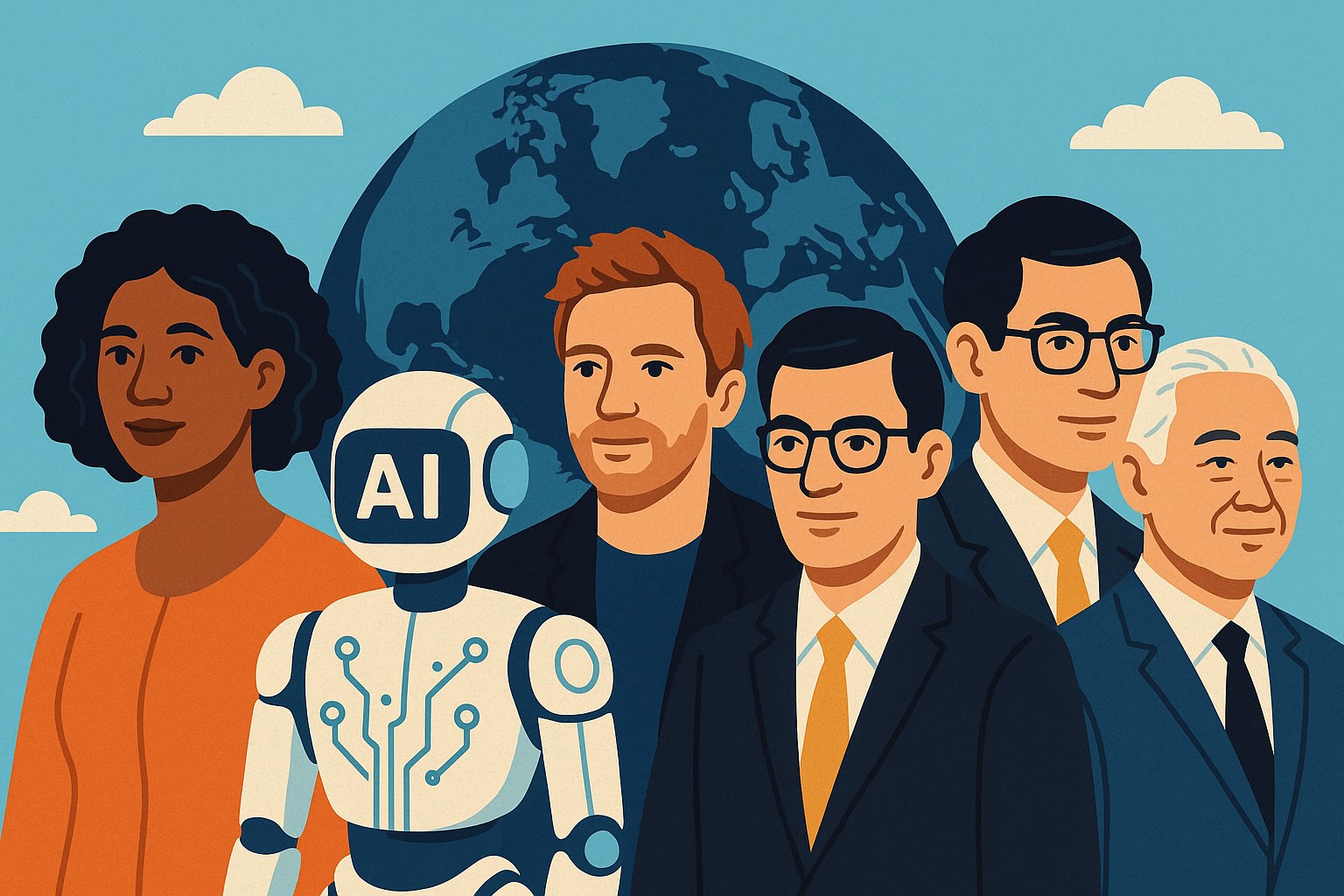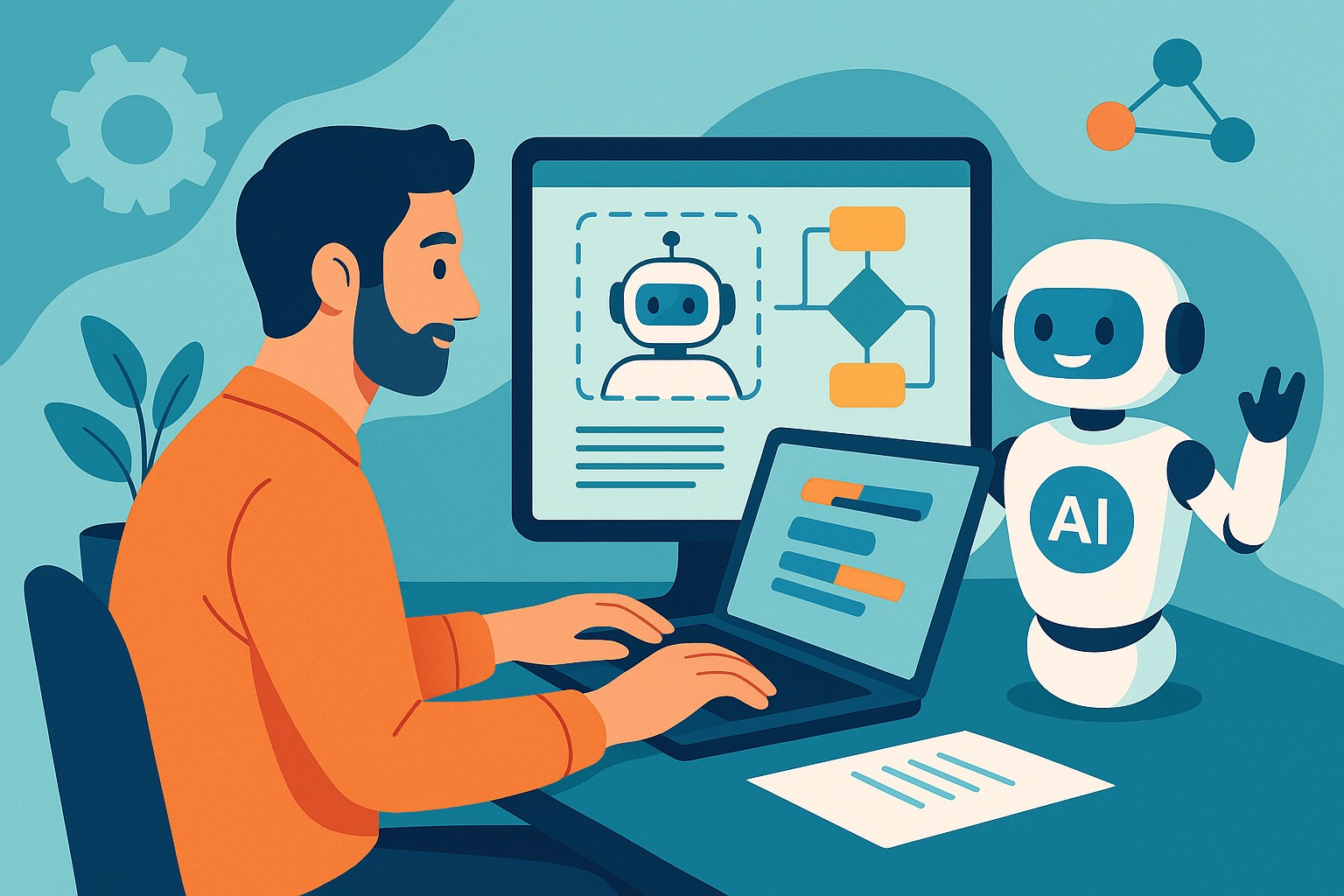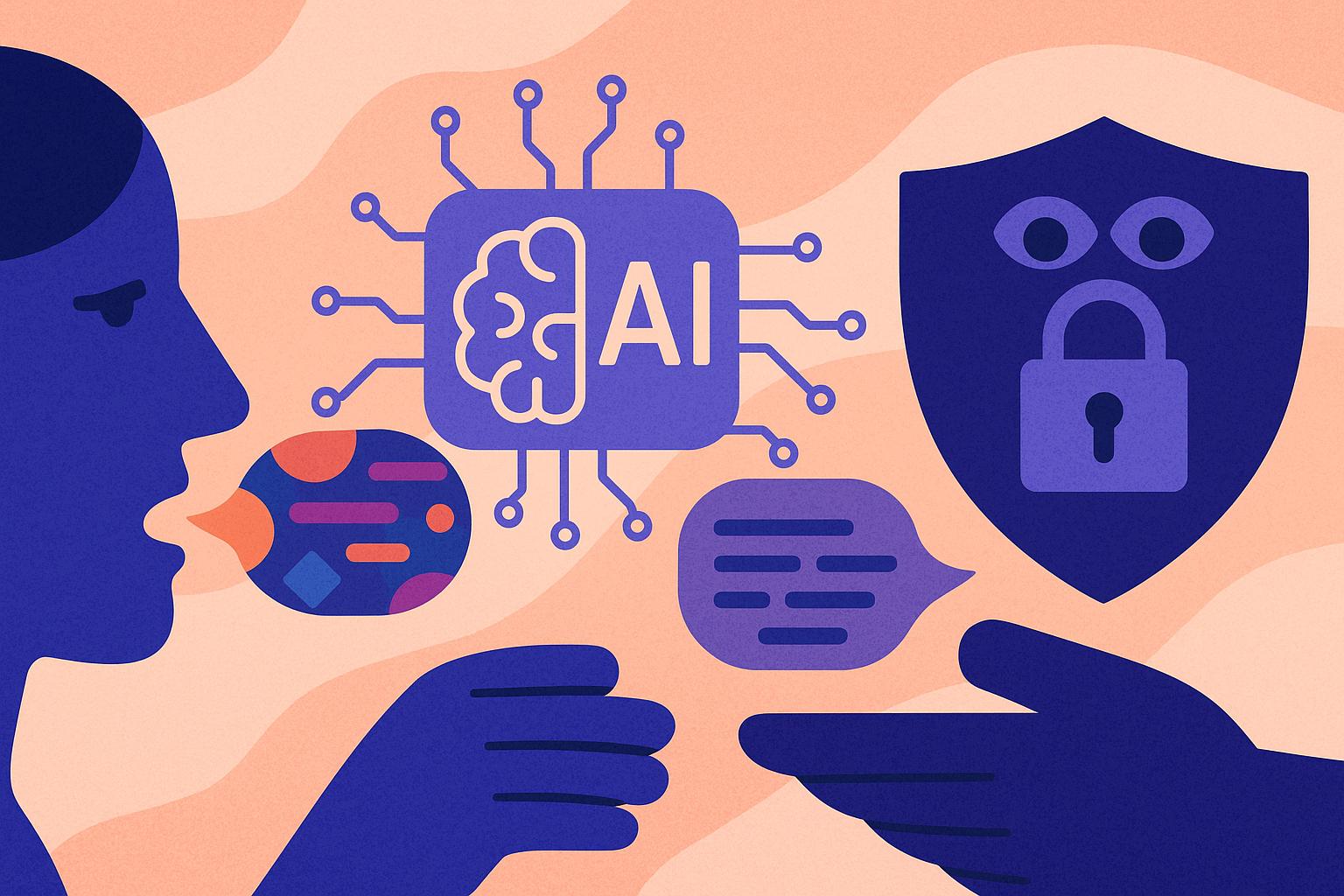Visit Our websites

Key Players Dominating the AGI Landscape
Key Players Dominating the AGI Landscape are shaping the future in ways that will redefine work, society, and how we interact with intelligent machines. If you’ve been curious about where Artificial General Intelligence (AGI) is headed and who is driving its massive growth, you’re not alone. Demand for insight into AGI is skyrocketing, and today’s innovators are competing fiercely to be at the forefront of this revolutionary shift. By the end of this article, you’ll gain clarity on the companies, founders, and concepts shaping AGI’s evolution in 2025 and beyond.
Also Read: Embracing the Rise of Artificial General Intelligence
What is Artificial General Intelligence?
Artificial General Intelligence (AGI) refers to a form of AI with the ability to perform any intellectual task that a human being can do. Unlike narrow AI, which is designed for specific tasks such as language translation or image recognition, AGI aims to mimic human cognitive abilities across a wide range of domains. This includes reasoning, problem-solving, learning, perception, and even creativity.
AGI systems are designed to generalize knowledge and adapt to new situations, making them versatile and more autonomous than traditional AI models. The dream of AGI is to build a machine that understands context like a human and constantly improves itself through real-world experiences.
OpenAI: Pushing the Boundaries of Human-Like Intelligence
OpenAI remains one of the central players in the AGI race. Known globally for creating ChatGPT, the company set its focus on democratizing AI access while keeping its development open-source and ethically aligned. Its research teams actively push beyond transformer architectures and language modeling to explore multi-modal models that process not just text, but audio, images, and video.
The introduction of GPT-5, expected in late 2025, is rumored to take a significant leap toward AGI-level capabilities. OpenAI’s long-term goal is to create safe AGI that benefits all of humanity, ensuring diverse voices and interests are represented as it unfolds this ambitious vision.
Also Read: Top AI Models with Minimal Hallucination Rates
Anthropic: Human-Centered AI with Deep Guardrails
Founded by Dario Amodei, a former executive at OpenAI, Anthropic positions itself as the safety-first alternative in the AGI space. Its Claude model has gained strong traction by introducing rigorous guardrails to AI behavior based on Constitutional AI principles. This method uses a set of implicit ethical agreements to teach the AI how to behave responsibly without relying solely on classic reinforcement learning methods.
Anthropic’s work emphasizes interpretable AI, focusing on making AGI understandable and predictable. Its focus on transparent reasoning is attractive to companies and governments seeking long-term AI stability and safety.
Mistral AI and the Open-Source Revolution
Mistral AI has positioned itself as the rebel innovator in the AGI conversation. Through fully open-source large language model releases, the company empowers developers worldwide to take part in the AGI evolution. Started by a team of AI veterans from Meta and DeepMind, Mistral avoids closed ecosystems and focuses on lean, efficient models that rival larger proprietary systems in performance.
Companies and government institutions looking for more affordable, customizable AGI frameworks are turning to Mistral. Its presence is driving major competition and raising the bar for innovation in the open-source AI community.
Also Read: Impact of artificial intelligence In Healthcare Sector
Google DeepMind: Scientific AI at the Cutting Edge
DeepMind, the AI research unit of Alphabet (Google’s parent company), has combined sophisticated computing with scientific inquiry to challenge the current limits of artificial intelligence. DeepMind is well-known for developing AlphaGo, AlphaZero, and AlphaFold — systems that have surpassed human expertise in board games and protein folding, respectively.
Taking an experimental approach toward AGI, DeepMind now focuses on agents that learn and think like humans. With recent projects emphasizing multi-modal learning and adaptive reasoning, the company is transitioning from task-specific achievements to general-purpose intelligence. DeepMind’s ethics board and AI alignment research also signal an intent to guide AGI toward beneficial outcomes for society.
Meta has been quietly ramping up its AGI aspirations through major investments in infrastructure and research. CEO Mark Zuckerberg confirmed in early 2024 that Meta aims to develop “general intelligence” and connect it across its immersive augmented and virtual reality platforms.
Leveraging its global user base and computing power, Meta is working on both proprietary large language models and open-source tools like LLaMA (Large Language Model Meta AI). With its social network foundation, Meta already possesses a wealth of labeled data, making it uniquely positioned to model human behavior at scale. Its AGI strategy includes integrating these models into consumer products such as virtual assistants, augmented reality systems, and content moderation tools.
AI21 Labs and Cohere: Specialized Intelligence Services
AI21 Labs and Cohere are emerging as key players focused on commercializing aspects of AGI across enterprise markets. AI21 Labs, known for its Jurassic language models, provides highly customizable AI solutions tailored for professional writing, business analytics, and code generation.
Cohere, based in Canada, prioritizes API-first development of neural language models with an emphasis on privacy and security. Its models power enterprise-grade tools for summarization, semantic search, and conversational AI. Both companies are filling important gaps in AGI’s journey by offering practical, scalable intelligence services to specific industries.
Also Read: Sam Altman Predicts Rise of Artificial General Intelligence
The Growing Impact of AGI Startups Worldwide
Beyond Silicon Valley giants, dozens of smaller AGI startups across the globe are contributing meaningfully to this space. Hugging Face, based in New York and Paris, is pioneering model-sharing platforms and standardizing open AI practices. Companies such as Inflection AI, Rewind AI, and Adept AI Labs are exploring narrow AGI use cases from personal memory recall to contextual automation across professional workflows.
This growing diversity of players means that while a few large companies dominate headlines, the AGI movement is becoming increasingly decentralized. Such openness could accelerate breakthroughs and policy conversations around ethical use, including responsible deployment, social impact, and global accessibility.
AGI’s Future: Governance, Ethics, and Society
The rush toward AGI also demands global conversations about regulation and purpose. Tech companies are beginning to call for more formal guardrails, including voluntary commitments and industry-led governance frameworks. Many AGI developers are proactively building ethical units and publishing transparency reports.
Meanwhile, global institutions and policymakers are being urged to establish international agreements that address areas like misinformation, labor displacement, surveillance, and existential risk. The trajectory of AGI will ultimately be shaped not just by models and code, but by philosophies and safeguards instituted in its foundation years.
Conclusion: Tracking the Makers of Tomorrow’s Intelligence
The race toward AGI is intensifying, and a clear pattern is emerging. From titans like OpenAI and Google DeepMind to challengers such as Mistral and Cohere, the AGI game is no longer about experimental research—it’s about long-term vision, real-world deployment, and public trust.
As the pursuit of true AGI continues, those looking to understand the future would do well to follow these innovators shaping what intelligence itself will come to mean. Whether you are a technologist, business leader, policymaker, or simply curious, keeping a close eye on these key players will help navigate a world being redefined by machine minds.
References
Anderson, C. A., & Dill, K. E. The Social Impact of Video Games. MIT Press, 2021.
Rose, D. H., & Dalton, B. Universal Design for Learning: Theory and Practice. CAST Professional Publishing, 2022.
Selwyn, N. Education and Technology: Key Issues and Debates.Bloomsbury Academic, 2023.
Luckin, R. Machine Learning and Human Intelligence: The Future of Education for the 21st Century. Routledge, 2023.
Siemens, G., & Long, P. Emerging Technologies in Distance Education. Athabasca University Press, 2021.
BONUS LINK VISIT NOW
Visit Our websites



















